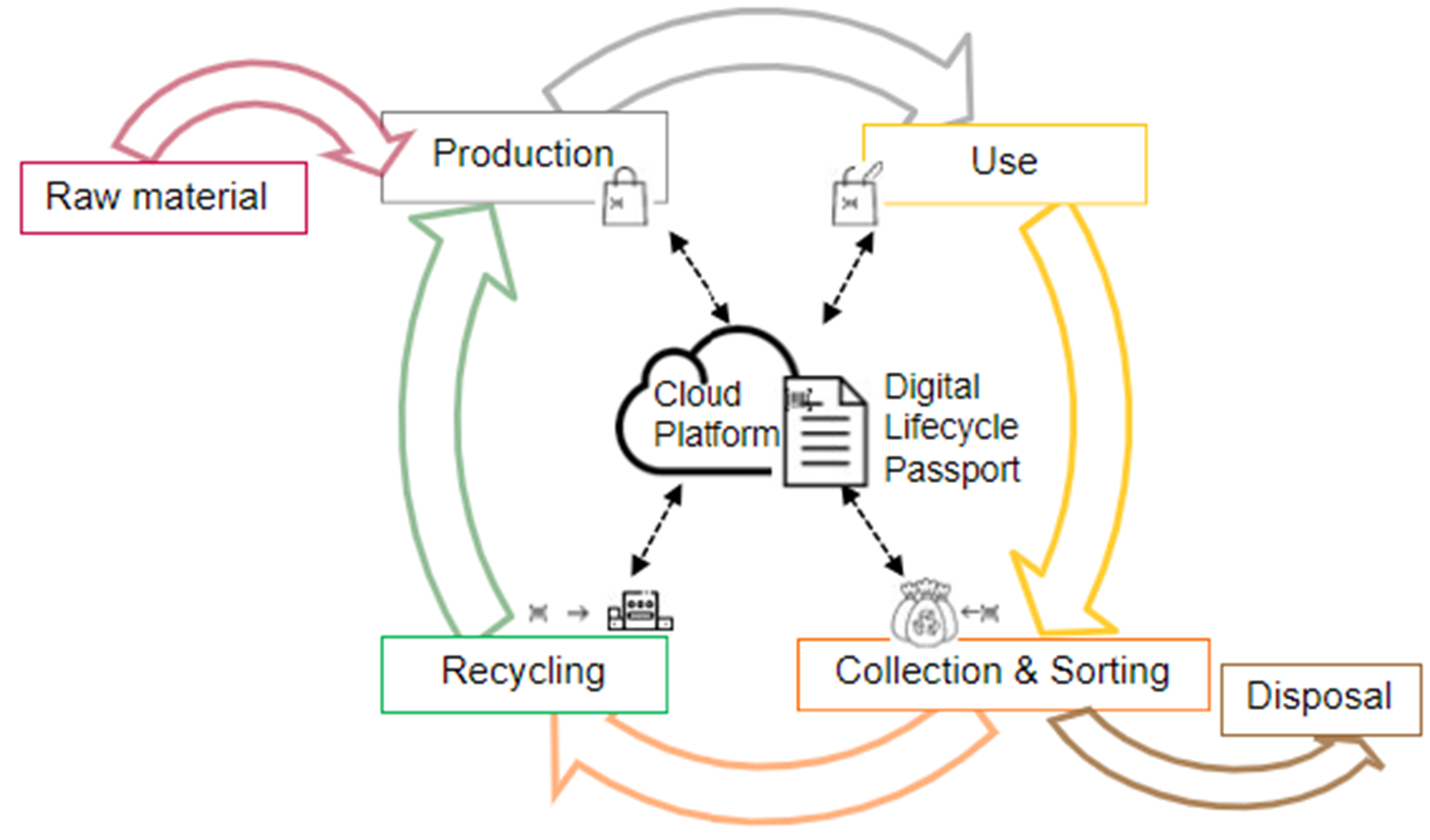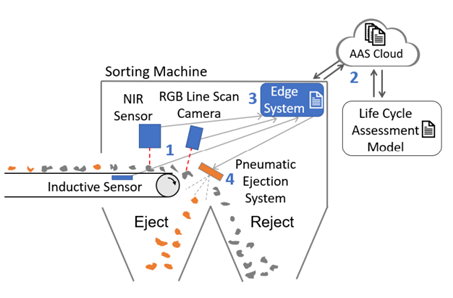Transparent design of material cycles and optimisation of waste sorting with the help of artificial intelligence
The EU Climate Law sets out the goal for Europe to become the first climate-neutral continent by 2050. The transition to a circular economy is central to this and requires the participation of all relevant stakeholders.
At present, there is still insufficient communication between producers, waste disposal companies and recycling companies, particularly regarding the actual recyclability of a product at the end of its life. Producers therefore often lack the information they need to improve the recyclability of products. Meanwhile, the waste management industry lacks knowledge about the quantities and qualities of the expected material flows. This information deficit hinders the logistics and technological development of recycling processes.
| Project | The ReCircE project aims to develop a digital ‘life cycle file’ to increase the transparency of product life cycles and thus improve the circular economy. |
|---|---|
| schedule | 1 October 2020 - 30 September 2023 |
| Research consortium |
|
| funding | The project is funded by the Federal Ministry for the Environment, Nature Conservation, Nuclear Safety and Consumer Protection with a total of €1.8 million. |

